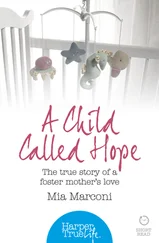Ганс Андерсен - The True Story of My Life - A Sketch
Здесь есть возможность читать онлайн «Ганс Андерсен - The True Story of My Life - A Sketch» — ознакомительный отрывок электронной книги совершенно бесплатно, а после прочтения отрывка купить полную версию. В некоторых случаях можно слушать аудио, скачать через торрент в формате fb2 и присутствует краткое содержание. Жанр: Биографии и Мемуары, literature_19, Европейская старинная литература, foreign_antique, на английском языке. Описание произведения, (предисловие) а так же отзывы посетителей доступны на портале библиотеки ЛибКат.
- Название:The True Story of My Life: A Sketch
- Автор:
- Жанр:
- Год:неизвестен
- ISBN:нет данных
- Рейтинг книги:3 / 5. Голосов: 1
-
Избранное:Добавить в избранное
- Отзывы:
-
Ваша оценка:
- 60
- 1
- 2
- 3
- 4
- 5
The True Story of My Life: A Sketch: краткое содержание, описание и аннотация
Предлагаем к чтению аннотацию, описание, краткое содержание или предисловие (зависит от того, что написал сам автор книги «The True Story of My Life: A Sketch»). Если вы не нашли необходимую информацию о книге — напишите в комментариях, мы постараемся отыскать её.
The True Story of My Life: A Sketch — читать онлайн ознакомительный отрывок
Ниже представлен текст книги, разбитый по страницам. Система сохранения места последней прочитанной страницы, позволяет с удобством читать онлайн бесплатно книгу «The True Story of My Life: A Sketch», без необходимости каждый раз заново искать на чём Вы остановились. Поставьте закладку, и сможете в любой момент перейти на страницу, на которой закончили чтение.
Интервал:
Закладка:
One night the little opera of the Two Little Savoyards was given; in the market scene every one, even the mechanists, might go up to help in filling the stage; I heard them say so, and rouging myself a little, I went happily up with the others. I was in my ordinary dress; the confirmation coat, which still held together, although, with regard to brushing and repairs, it lookedebut miserably, and the great hat which fell down over my face. I was very conscious of the ill condition of my attire, and would have been glad to have concealed it; but, through the endeavor to do so, my movements became still more angular. I did not dare to hold myself upright, because, by so doing, I exhibited all the more plainly the shortness of my waistcoat, which I had outgrown. I had the feeling very plainly that people would make themselves merry about me; yet, at this moment, I felt nothing but the happiness of stepping for the first time before the foot-lamps. My heart beat; I stepped forward; there came up one of the singers, who at that time was much thought of, but now is forgotten; he took me by the hand, and jeeringly wished me happiness on my debut. "Allow me to introduce you to the Danish public," said he, and drew me forward to the lamps. The people would laugh at me—I felt it; the tears rolled down my cheeks; I tore myself loose, and left the stage full of anguish.
Shortly after this, Dahlen arranged a ballet of Armida, in which I received a little part: I was a spirit. In this ballet I became acquainted with the lady of Professor Heiberg, the wife of the poet, and now a highly esteemed actress on the Danish stage; she, then a little girl, had also a part in it, and our names stood printed in the bill. That was a moment in my life, when my name was printed! I fancied I could see it a nimbus of immortality. I was continually looking at the printed paper. I carried the programme of the ballet with me at night to bed, lay and read my name by candle light—in short, I was happy.
I had now been two years in Copenhagen. The sum of money which had been collected for me was expended, but I was ashamed of making known my wants and my necessities. I had removed to the house of a woman whose husband, when living, was master of a trading-vessel, and there I had only lodging and breakfast. Those were heavy, dark days for me.
The lady believed that I went out to dine with various families, whilst I only ate a little bread on one of the benches in the royal garden. Very rarely did I venture into some of the lowest eating-houses, and choose there the least expensive dish. I was, in truth, very forlorn; but I did not feel the whole weight of my condition. Every person who spoke to me kindly I took for a faithful friend. God was with me in my little room; and many a night, when I have said my evening prayer, I asked of Him, like a child, "Will things soon be better with me?" I had the notion, that as it went with me on New Year's Day, so would it go with me through the whole year; and my highest wishes were to obtain a part in a play.
It was now New Year's Day. The theatre was closed, and only a half-blind porter sat at the entrance to the stage, on which there was not a soul. I stole past him with beating heart, got between the movable scenes and the curtain, and advanced to the open part of the stage. Here I fell down upon my knees, but not a single verse for declamation could I recall to my memory. I then said aloud the Lord's Prayer, and went out with the persuasion, that because I had spoken from the stage on New Year's Day, I should in the course of the year succeed in speaking still more, as well as in having a part assigned to me.
During the two years of my residence in Copenhagen I had never been out into the open country. Once only had I been in the park, and there I had been deeply engrossed by studying the diversions of the people and their gay tumult. In the spring of the third year, I went out for the first time amid the verdure of a spring morning. It was into the garden of the Fredericksberg, the summer residence of Frederick VI. I stood still suddenly under the first large budding beech tree. The sun made the leaves transparent—there was a fragrance, a freshness—the birds sang. I was overcome by it—I shouted aloud for joy, threw my arms around the tree and kissed it.
"Is he mad?" said a man close behind me. It was one of the servants of the castle. I ran away, shocked at what I had heard, and then went thoughtfully and calmly back to the city.
My voice had, in the mean time, in part regained its richness. The singing master of the choir-school heard it, offered me a place in the school, thinking that, by singing with the choir, I should acquire greater freedom in the exercise of my powers on the stage. I thought that I could see by this means a new way opened for me. I went from the dancing-school into the singing-school, and entered the choir, now as a shepherd, and now as a warrior. The theatre was my world. I had permission to go in the pit, and thus it fared ill with my Latin. I heard many people say that there was no Latin required for singing in the choir, and that without the knowledge of this language it was possible to become a great actor. I thought there was good sense in that, and very often, either with or without reason, excused myself from my Latin evening lesson. Guldberg became aware of this, and for the first time I received a reprimand which almost crushed me to the earth. I fancy that no criminal could suffer more by hearing the sentence of death pronounced upon him. My distress of mind must have expressed itself in my countenance, for he said "Do not act any more comedy." But it was no comedy to me.
I was now to learn Latin no longer. I felt my dependence upon the kindness of others in such a degree as I had never done before. Occasionally I had had gloomy and earnest thoughts in looking forward to my future, because I was in want of the very necessaries of life; at other times I had the perfect thoughtlessness of a child.
The widow of the celebrated Danish statesman, Christian Colbj÷rnsen, and her daughter, were the first ladies of high rank who cordially befriended the poor lad; who listened to me with sympathy, and saw me frequently. Mrs. von Colbj÷rnsen resided, during the summer, at Bakkehus, where also lived the poet Rahbek and his interesting wife. Rahbek never spoke to me; but his lively and kind-hearted wife often amused herself with me. I had at that time again begun to write a tragedy, which I read aloud to her. Immediately on hearing the first scenes, she exclaimed, "But you have actually taken whole passages out of Oehlenschl ger and Ingemann."
"Yes, but they are so beautiful!" replied I in my simplicity, and read on.
One day, when I was going from her to Mrs. von Colbj÷rnsen, she gave me a handful of roses, and said, "Will you take them up to her? It will certainly give her pleasure to receive them from the hand of a poet." These words were said half in jest; but it was the first time that anybody had connected my name with that of poet. It went through me, body and soul, and tears filled my eyes. I know that, from this very moment, my mind was awoke to writing and poetry. Formerly it had been merely an amusement by way of variety from my puppet-theatre.
At Bakkehus lived also Professor Thiele, a young student at that time, but even then the editor of the Danish popular legends, and known to the public as the solver of Baggesen's riddle, and as the writer of beautiful poetry. He was possessed of sentiment, true inspiration, and heart. He had calmly and attentively watched the unfolding of my mind, until we now became friends. He was one of the few who, at that time, spoke the truth of me, when other people were making themselves merry at my expense, and having only eyes for that which was ludicrous in me. People had called me, in jest, the little orator, and, as such, I was an object of curiosity. They found amusement in me, and I mistook every smile for a smile of applause. One of my later friends has told me that it probably was about this period that he saw me for the first time. It was in the drawing-room of a rich tradesman, where people were making themselves very merry with me. They desired me to repeat one of my poems, and, as I did this with great feeling, the merriment was changed into sympathy with me.
Читать дальшеИнтервал:
Закладка:
Похожие книги на «The True Story of My Life: A Sketch»
Представляем Вашему вниманию похожие книги на «The True Story of My Life: A Sketch» списком для выбора. Мы отобрали схожую по названию и смыслу литературу в надежде предоставить читателям больше вариантов отыскать новые, интересные, ещё непрочитанные произведения.
Обсуждение, отзывы о книге «The True Story of My Life: A Sketch» и просто собственные мнения читателей. Оставьте ваши комментарии, напишите, что Вы думаете о произведении, его смысле или главных героях. Укажите что конкретно понравилось, а что нет, и почему Вы так считаете.












